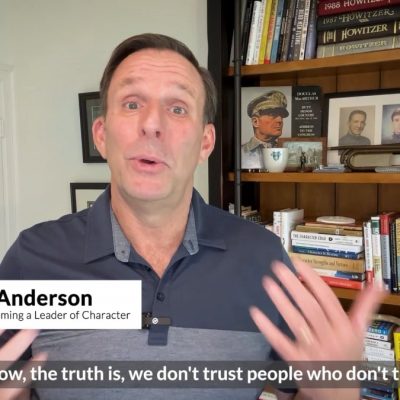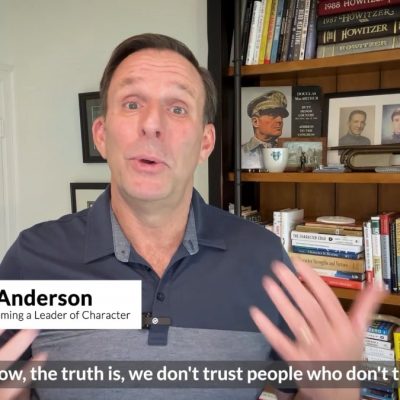Positivity – Displaying a positive and/or “can do” attitude in all circumstances.
Joy-suckers drain us. We all know that person, don’t we? They are the ones that leave us worn out, deflated, and in a worse mood. Their negativity is a gift they feel like they must share with everyone they meet.
While I was leading one of our Officers of Character seminars, I witnessed this negativity from a senior Police Sergeant. One of her roles was to be a Field Training Officer for new officers during their first six months in the agency. During each case study we discussed, her feedback consistently sucked the joy out of the room. She had a gift for pointing out situations where a certain approach wouldn’t work. She told stories about the failures of other officers and leaders in her career. She dominated her small group discussions and in the end, shut down all discussions and people stopped participating. They just let her ramble on. She wielded a lot of influence on the group. Unfortunately, all her influence was used to suck the life out of others.
The morale of a team, at work or at home is often a reflection of the leader. If the leader has the gift of joy sucking, the team or the family will either develop the same gift or stop listening to the leader. The influence they have can inspire people to feel either hopeful or hopeless. Encouraged or discouraged. Active or complacent.
The role of a leader is not to make people feel hopeless, discouraged and complacent. A Leader of Character needs to step up and choose to have a positive influence in the midst of the difficulties. That does not mean being overly idealistic. That just means that the leader needs to understand the impact their words and actions have on the morale of the people around them.
The Field Training Officer that was dragging everyone else down missed her opportunity. Even though law enforcement is under constant scrutiny by the media, her agency was undermanned and the city leadership was looking to cut budgets, she could have created hope, encouraged the younger officers and inspired them to positive actions versus complacency.
● She could have talked about positive changes she had seen through the turmoil of 2020.
● She could have shared stories about positive interactions she observed a young officer have with a citizen.
● She could have discussed what action officers can take individually to build up trust within the communities they patrol.
Our circumstances don’t choose our attitudes, we do. Unfortunately, she was in the habit of making the wrong choices after many years of letting the circumstances in law enforcement choose for her.
Dig Deep Questions:
- How well do you do at helping others feel hopeful or feel encouraged?
- How does Positivity inspire us from complacency to taking action?
Exercising Positivity takes work and is a lifelong journey. We want to partner with you as you practice the habit of Positivity daily, which is why we have created FREE tools and resources to guide your journey.
To make it easy to keep the definition of Positivity visible on your screens and devices, we would like to share our FREE Positivity backgrounds for desktop and mobile available for download at: https://www.becomingaleaderofcharacter.com/tools-resources







